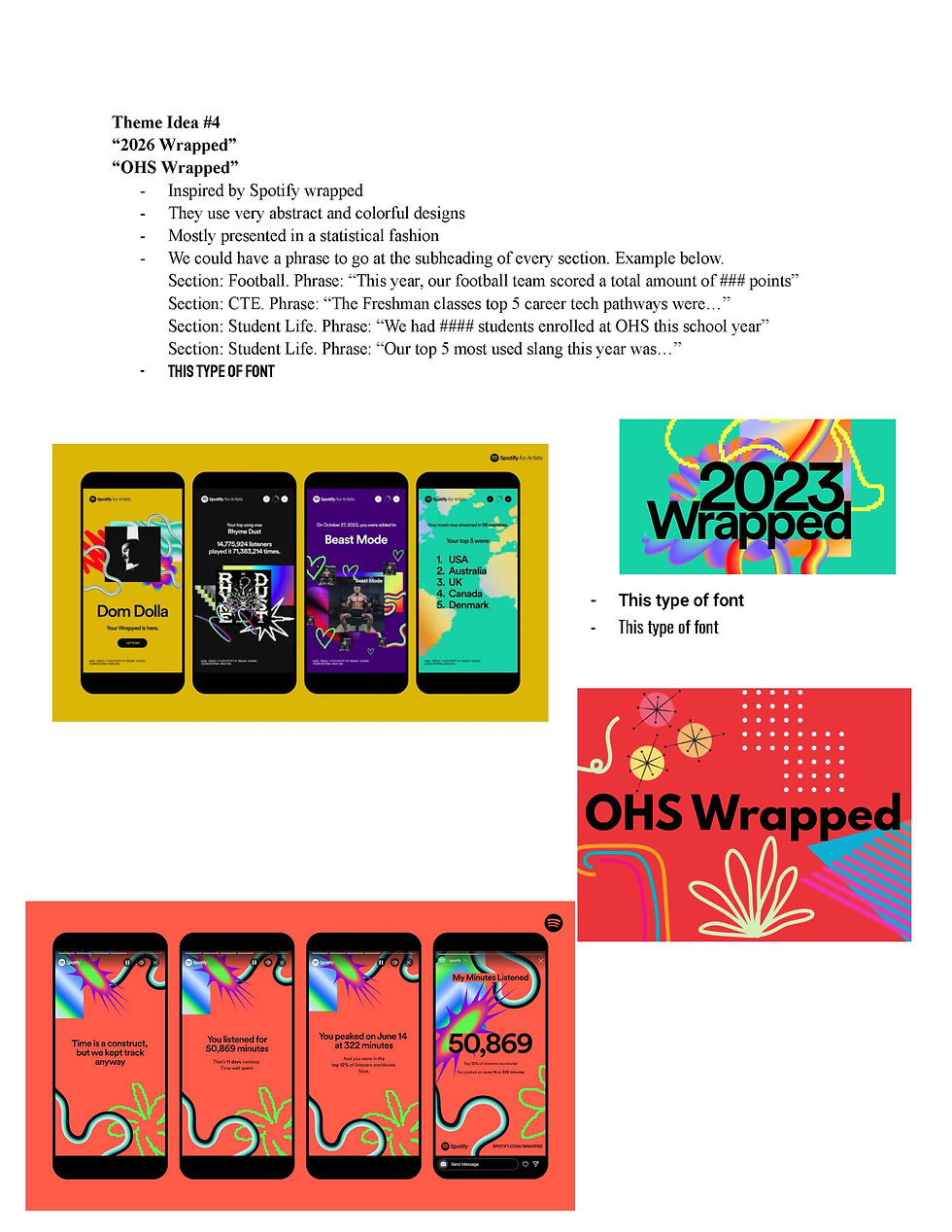Developing Our Yearbook Theme: Part 1
- Samantha Alliston Bridges
- Jun 11, 2025
- 3 min read
It’s messy. In May, once the current year’s books are distributed and I’ve cleaned up any little mistakes, named my new editors, and am counting down the days when my Seniors stricken with itis can leave my room, we begin to generate new ideas for next year’s theme.
Our publisher is Varsity Yearbooks (formerly Herff Jones) and the resources on their site are pretty good. I pull a few things from there as starting points like their list of theme ideas, a brainstorming handout, etc. Then I hand it off to my editors and let them pick what they like.
Their initial notes this year were simple highlights and asterisks about what stood out to them. And while it was an okay start, I would actually like to change how I approach this next year because it’s missed a lot.
In order for a theme to be successful, it needs to answer why? Why in the world is this theme representative of our school? What makes it worthwhile? How does it capture who we are as a group of people who roam these hallways every day?
If a theme can answer those questions then it can engage an audience and, quite frankly, you and your staff. Too often in Yearbook when developing theme ideas, we just ask: What will be cute? What looks good? These questions only go so far because they ask us and our staff members to just stay at the surface level and not develop skills they can use in the work force.
My students began doing just this with their theme ideas in the documents below:

While there's a beginning thought about how to capture the school in the document above, it still focuses on the surface level. So I ask myself, how can I push them to think about this in the context of our story as a school? How does social media embody what it's like to be a teenager in 2026?

Here again, it's similar to the first theme idea. While I love the idea of color and this phenomenon of the app, Spotify, how does it represent being a teen in 2026? After all, Spotify was around thirteen years ago when I was in school. Do we tie its historical presence in?
I want to point out in this discussion that I am in no way expressing anger or disappointment in my students. They did exactly what I asked them to do, and it's on me for not directing questions that would dig beneath the surface. That's why there will be a few more posts about how we develop our theme this school year.
On our shared document, I asked my editors these exact questions detailed above and while I wait for their response, I'm also returning to my own theme idea to apply that deeper thinking. If we left it to the surface level, we would get bored. We would box ourselves in. Cute and fun only go so far in any context of communication and this is exactly what a yearbook is -- a letter from the past. The books exist to document a life within a very specific time frame, and just making it visually appealing will not only make it more antiquated by the time students are in the middle of their lives, but it will rob them of documenting real moments shared amongst friends. While high school is not everyone's happy place in their memories, it is still a place where we begin to form our identity and step toward a future.
I hope in this conversation you might challenge yourself or your students to think beyond just what the other kids will like and form ideas behind the why? After all, it's one of the first questions we begin asking on repeat as we develop to understand the world around us, so it only makes since to keep asking it so we can keep developing.
Let me know about how you develop your theme ideas in the comments or shoot me an email! I'm excited to hear about your experiences!
Kind Regards,


Comments